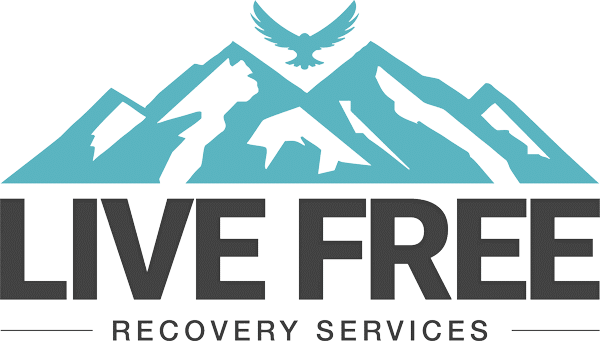FREEDOM THROUGH ACTION
Call us at (888) 610-2847




Is Alcohol Withdrawal Dangerous?
According to the NLM, more than 50% of people with a history of alcohol abuse will go through withdrawal when stopping or using their alcohol use. An estimated 3% - 5% of that group will experience a dangerous and severe form of alcohol withdrawal known as delirium tremens. Because so many people experience alcohol withdrawal, it’s imperative that society learns how to deal with alcohol withdrawal.
LEARNING
What is Alcohol Withdrawal?
Alcohol withdrawal occurs when a person that suffers from alcohol addiction and/or dependency minimizes or discontinues drinking. This is because excessive alcohol abuse has literally caused that person’s body to become dependent on alcohol to function. Thus, a person only needs to suffer from alcohol dependency to experience alcohol withdrawal.
All individuals that suffer from alcohol addiction are also dependent on alcohol. Despite that, not all people that suffer from alcohol dependency technically suffer from alcohol addiction yet. This is because alcohol dependency is a stepping stone to alcohol addiction and the chemical changes in the brain that alcohol addiction causes.
Although not all individuals that suffer from alcohol dependency technically suffer from alcohol addiction yet, nearly all people that abuse alcohol to the point of developing alcohol dependency develop alcohol addiction. Thus, anyone that experiences alcohol withdrawal symptoms should seek out treatment for his or her alcohol abuse issues.
Drug and Alcohol Rehab Resources in New HampshireCommon Alcohol Withdrawal Symptoms
There are numerous different alcohol withdrawal symptoms. The longer a person struggles with alcohol dependency and addiction, the more severe that person’s condition becomes. The more severe a person’s alcohol dependency and addiction become, the higher his or her tolerance also becomes. This causes people to experience more severe alcohol withdrawal symptoms.
Some of the more common alcohol withdrawal symptoms include the following:
- Headaches
- Anxiety
- Insomnia
- Fatigue
- Mood changes
- Fever
- Confusion
- Vomiting
- Gastrointestinal disturbances
- Excessive sweating
- Heart palpitations
- Increased heart rate
- Increased blood pressure
- Rapid breathing
- Hallucinations
- Tremors
- Seizures
- Hyperthermia
Managing Alcohol Withdrawal Symptoms
The only way to stop experiencing alcohol withdrawal symptoms is to properly learn how to deal with alcohol withdrawal symptoms. To overcome alcohol dependency and addiction, one must attend alcohol detox followed by alcohol addiction treatment.
Because alcohol detox requires individuals to slowly taper their use of alcohol until they are no longer drinking and no longer have any alcohol in their bodily systems, it’s impossible to completely avoid experiencing alcohol withdrawal symptoms while detoxing. It is possible to manage one’s alcohol withdrawal symptoms during detox though through medication-assisted treatment.
Medication-Assisted Treatment
Medication-assisted treatment is when doctors prescribe individuals in medical detox prescription medications to help them more easily manage their withdrawal symptoms. There are certain types of prescription medications that are safe to use when treating alcohol withdrawal symptoms from certain substances. Below are the prescription medications that doctors sometimes prescribe individuals in alcohol detox to help them learn how to deal with alcohol withdrawal symptoms.
Doctors prescribe FDA-approved benzodiazepines for alcohol withdrawal. Benzodiazepines that doctors prescribe to individuals to help them manage their alcohol withdrawal symptoms include:
- Chlordiazepoxide (Ex. Librium)
- Clorazepate (Ex. Tranxene)
- Diazepam (Ex. Valium)
- Oxazepam (Ex. Serax)
Examples of anticonvulsant medications that doctors sometimes prescribe to people suffering from seizures during medical detox due to alcohol withdrawal include:
- Carbamazepine ( Ex. Tegretol)
- Gabapentin (Ex. Neurontin)
- Oxcarbazepine (Ex. Trileptal)
- Valproic Acid (Ex. Depakene)
FDA-approved medications that people typically hear about when it comes to treating alcohol withdrawal symptoms due to alcohol dependence and addiction.
- Disulfiram (Antabuse)
- Naltrexone (Vivitrol and Revia)
- Acamprosate (Campral)
Types of Rehab Programs
Everyone’s treatment needs are unique. Following your initial assessment,
your treatment team will recommend a level of substance abuse care based on your circumstances.
Inpatient Residential Care
Inpatient programs allow you to live at a treatment facility for the duration of your program so that you can have 24-hour access to medical care and support. Inpatient programs provide a structured living environment that can be especially helpful to those who are struggling with long-term physical dependence and psychological addiction.


Partial Hospitalization Programs (PHPs)
Partial hospitalization programs are the most intense outpatient rehab programs. This is because PHPs require their patients to receive treatment for approximately five to eight hours a day, five to seven days a week.
Outpatient Programs (OPs)
Standard outpatient programs (OPs) require their patients to receive treatment for approximately a couple of hours a day, once or twice a week.


Intensive Outpatient Programs (IOPs)
Intensive outpatient programs (IOPs) require their patients to receive treatment for approximately three to four hours a day, a few days a week.
